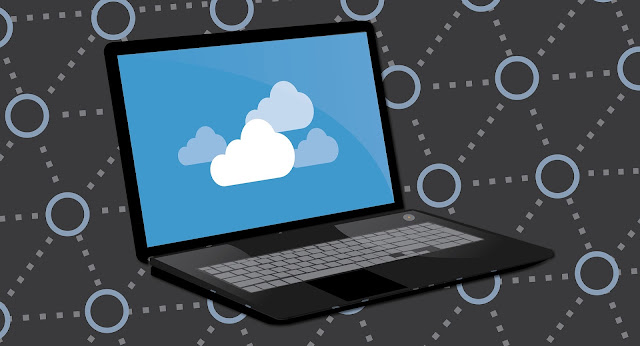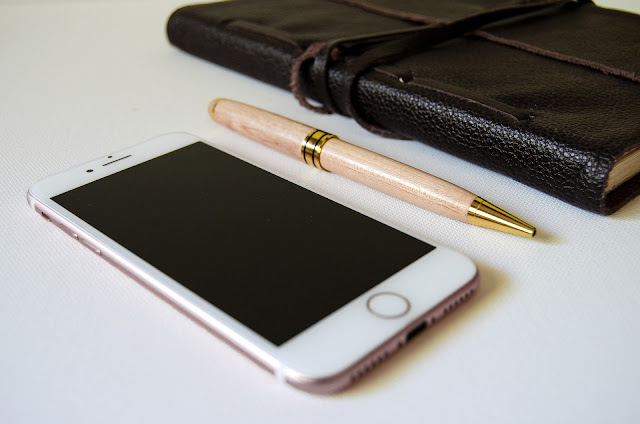Introduction:
iPhones have become an essential part of our lives, and we store a lot of important data on them, such as contacts, photos, messages, and documents. However, the data on our iPhone is not always safe and secure, and it can be lost due to various reasons such as accidental deletion, software updates, or hardware failure. Therefore, it is essential to backup your iPhone regularly to ensure that your data is safe and secure. In this article, we will discuss the step-by-step guide on how to backup iPhone using different methods and tools.
 |
| Image by Katie White from Pixabay |
Why should you backup your iPhone?
Backing up your iPhone is essential for several reasons:
- To protect your data from loss or damage
- To restore your iPhone to its previous state after a software update or a restore
- To transfer your data to a new iPhone or another device
- To free up storage space on your iPhone
How to backup iPhone using iCloud
iCloud is a cloud-based service provided by Apple that allows you to backup your iPhone wirelessly. Here are the steps to backup your iPhone using iCloud:
- Connect your iPhone to a Wi-Fi network
- Go to Settings > iCloud > Backup
- Turn on the iCloud Backup toggle switch
- Tap Back Up Now to start the backup process
Note: Make sure that your iPhone is connected to a power source, and there is enough free space on iCloud to complete the backup.
How to backup iPhone using iTunes
iTunes is a software provided by Apple that allows you to backup your iPhone to your computer. Here are the steps to backup your iPhone using iTunes:
- Connect your iPhone to your computer using a USB cable
- Open iTunes on your computer
- Click on the iPhone icon in the upper left corner of the iTunes window
- Click on Summary in the left sidebar
- Click on Back Up Now to start the backup process
Note: Make sure that you have the latest version of iTunes installed on your computer.
 |
| Image by Megan Lee from Pixabay |
How to backup iPhone using third-party tools
Apart from iCloud and iTunes, there are several third-party tools available that allow you to backup your iPhone. These tools provide additional features such as selective backup, incremental backup, and cross-platform backup. Here are some popular third-party backup tools:
- iMazing
- CopyTrans Shelbee
- EaseUS MobiMover
- PhoneTrans
Note: Make sure that you download these tools from a trusted source, and read the instructions carefully before using them.
FAQs:
Q: How often should I backup my iPhone?
A: It is recommended to backup your iPhone at least once a week, or before any significant changes such as a software update or a factory reset.
Q: How much space do I need for an iCloud backup?
A: The space required for an iCloud backup depends on the amount of data on your iPhone. You can check the backup size in Settings > iCloud > Storage > Manage Storage.
Q: How long does it take to backup an iPhone?
A: The time required to backup an iPhone depends on the amount of data, the backup method, and the speed of your internet connection. It can take anywhere from a few minutes to several hours.
 |
| Image by MYMath from Pixabay |
Conclusion:
Backing up your iPhone is a simple yet essential task that can save you a lot of trouble and headache in case of data loss or damage. In this article, we discussed the step-by-step guide on how to backup iPhone using different methods and tools such as iCloud, iTunes, and third-party tools like iMazing, CopyTrans Shelbee, EaseUS MobiMover, and PhoneTrans. Each method has its advantages and disadvantages, and you can choose the one that suits your needs and preferences.
By following the steps mentioned in this article, you can backup your iPhone effortlessly and keep your important data safe and secure. So, don't wait any longer and start backing up your iPhone today!
Remember, it's always better to be safe than sorry, and backing up your iPhone regularly is the best way to ensure that your valuable data is protected. With the help of this comprehensive guide, you can easily backup your iPhone and avoid the risk of losing your data forever.
So, whether you're upgrading to a new iPhone, restoring your iPhone after a software update, or simply freeing up some storage space, make sure you backup your iPhone regularly. It's a small task that can have a significant impact on your digital life.